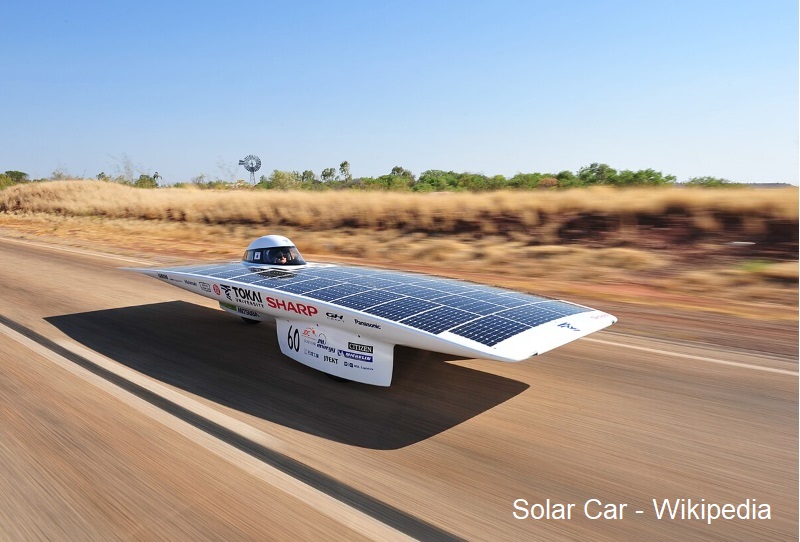
Writing this article has taken more thinking than I expected, as work and energy are supposed to be the “simple” ideas we learn in physics. “Work” is just the value you get when you multiply your force by the distance you push an object.
Not that that tells us very much. The real problem is – the physics meaning of energy is given in textbooks as the “capacity to do work” !
What capacity ??
“Capacity” here probably means “ability”. The issue with understanding this is that there are supposed to be many types of energies – chemical energy, heat energy, electrical energy, nuclear energy, etc. How are they able to do work? Are we supposed to just take for granted that light from the sun can somehow do work by pushing a car?
It is more likely that most students, like me, do not think about this at first. Even today, most people might not immediately think of cars with solar panels installed to :
- first convert sun’s nuclear energy into chemical energy in batteries,
- use the batteries to convert chemical energy into electrical energy for a motor,
- use the motor to convert electrical energy into kinetic energy of a car.
The last step is when “work” is actually done moving the car – in the sense of having a force to move it over some distance.
Once we see an example like this, it all seems quite obvious that whichever type of energy we start with, it can (after enough steps and technologies) be converted into a form that can do work by moving some object.
Unfortunately, I was never taught this way – not in school, not from books. I have not even thought about the “capacity to do work” in such a way until I started writing this article.
To be sure, a standard school physics textbook does contain most of the above details. However, the details would be disconnected and spread over the whole textbook in separate chapters on mechanics, heat, sound, light, electricity and maybe nuclear energy.
It was not until 1987 that the first World Solar Challenge started, where solar powered cars drove 3000 km through the Australia outback. And it was not until I started writing this in 2023 that I saw the Wikipedia on this event.
So ideas and teachings about energy has really been quite abstract all along. Maybe that is one reason why many people think that physics is a difficult topic.
With many familiar, everyday examples today, this is perhaps an easier time than any to learn about the physics of energy – that any form of energy can be used to do work by moving things from one place to another – provided the energy is converted to a suitable form first.
As climate change and energy crisis looms in the coming years, an understanding of physics is all the more important in helping us manage our limited resources on Earth.
You can learn these concepts and more at Dr Hock's maths and physics tuition.